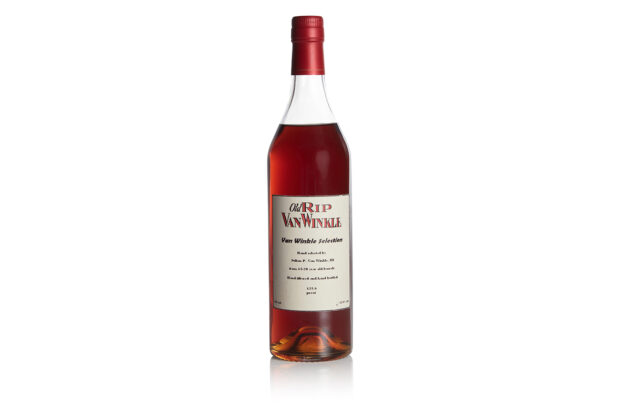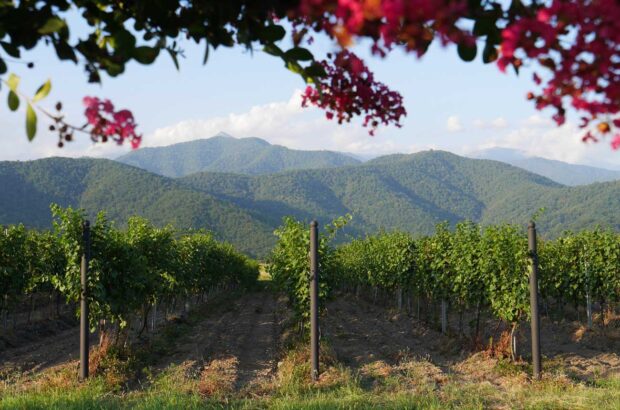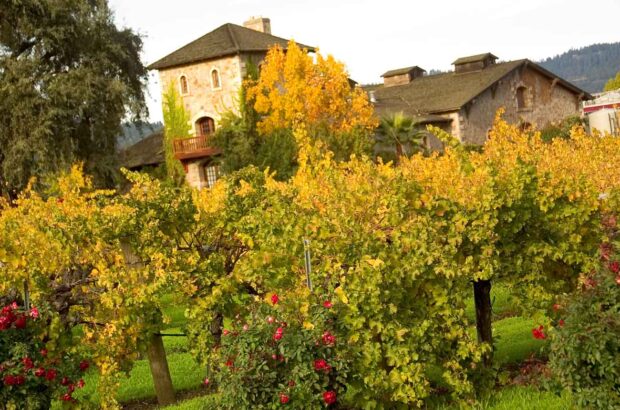In this week's column, Andrew Jefford considers the nature of descriptive tasting notes, and whether the wine world has lost sight of what a good note needs to convey.
An American friend sent me a copy of Bianca Bosker’s July 29th New Yorker article entitled ‘Is There a Better Way to Talk About Wine?’. The author, who is ‘currently at work on a new book, a wine-fueled journey to the extremes of taste that will illuminate the art and science behind enhancing our senses and chronicle a curious amateur’s exploration of the wine industry’, tackles the familiar topic of tasting notes and their often extravagant language.
It’s a soundly researched canter through this subject. She suggests (by quoting a couple of James Suckling’s notes for 1989 Haut-Brion, one made in 1992 and one in 2009) that a kind of adjectival inflation is at work, and that tasting notes are getting ever more baroque.
My own reading of leading critics’ notes suggests this is true. It’s as if, in the race to become ‘the next Parker’, each contender is trying to outdo the other, and bludgeon their rivals to death by adjectival force of arms. She also suggests that the often senseless metaphorical overload of wine discourse is now bizarrely fashionable, and straying into other fields.
The caustic rigour of studies carried out by the Journal of Wine Economics and others is cited, showing that the language of tasting notes is practically unhelpful, and best seen as ‘bulls**t’. I’ve often thought this myself; indeed I feel uneasy for having based my career in part on it. Should tasting notes not, in fact, be seen as the shame of the wine world? Shouldn’t we ‘just say no to notes’, and settle for a score?
As it happens, I read this article as I was preparing a Hong Kong workshop on wine description for students and keen amateurs, some of whom are hoping sooner or later to pass the WSET Diploma or IMW Master of Wine exams. This requires them to write disciplined, academic tasting notes. Notes are, thus, a vital way of assessing wine tasting skills.
But they’re more than that. Wine is the most complex substance we put into our mouths in terms of its nuances of aroma and flavour. We have to try to track that verbally in some way or another: simple numerical quantification won’t do. Numbers alone cannot adequately address the mystery of wine’s complexity; words must be involved.
If Parker had merely given scores, his critical work would not have achieved the economic significance it did. Nor is it quite good enough to call it all ‘bullsh**t’. If the work of Parker and others is followed, it is because it is found useful. Something is true; something is being communicated; something is of value.
Academic attempts to give rigour to wine writing (via, for example, Ann Noble’s ‘aroma wheel’), to come up with an objective language for wine, or to ‘unfuzz’ winespeak always end in boredom for the reader. Conservative, restrained wine descriptions are tedious, repetitive and soporific, and utterly fail to evoke the excitement of smelling and tasting wine. They are phenomenologically inadequate, if you like.
The issue, it seems to me, is as follows. The writing of descriptive (as opposed to academic) wine notes is a specialized form of wine entertainment, and is quickly seen as such by users. No one takes them literally; they are liberally sprinkled with salt by the experienced reader, and soon leach more water than an aubergine. The tongue is always somewhere in the writer’s cheek (or should be). They are drafted with a smile, in a spirit of levity (or should be). That’s how the genre works.
That said, there are three sorts of skill which can be buried in wine descriptions, and this is what readers are hunting for. The first is tasting skill: you can pick the right wines to go purple about. Parker has this, for the majority of his readers; that is one of the secrets of his success. They bought the bottles and, damn it, the guy was right.
The second is the ability to communicate enthusiasm. You read the note; you want to try the wine. This, too, is a skill Parker singularly possesses. (Pomposity and self-importance, by the way, detract from the levity of the genre; Parker avoids both with a nimbleness which eludes lesser critics.)
The third sort of skill is genuine literary skill, of the sort possessed by Hugh Johnson. It’s the glaring lack of this, in truth, which really hobbles the wine world’s reputation: most wine descriptions possess zero literary merit, Parker’s included. This is why they make the uninitiated laugh or weep, and come to seem embarrassing, in the fullness of time, by their perpetrators. (Me included.) I have long thought it a shame that the recruitment process for wine writers and critics, such as it is, tends to privilege wine interest and skill above writing ability. The danger is that you end up with wine nerds writing for wine nerds, in an excitable, echo-filled ghetto.
Bosker doesn’t provide an answer to her own question, but seems to acknowledge that objective wine descriptions are a dead end, and that in the end it is the ‘poetic’ end of wine discourse which exerts most traction. Given the fact that even published poetry can be bad poetry, this is setting the bar high; but she’s right.
Click here to read Andrew Jefford’s tips for descriptive wine notes.
Read more Jefford on Monday columns:

Jefford on Monday: Up The Steep Hill
I've never, alas, tasted an Araujo Estate Cabernet Sauvignon grown in the Eisele Vineyard. My newly acquired enthusiasm for great

Jefford on Monday: Mud Wrestling with the Bourguignons
Did you realise that, with every glass of Meursault and Montrachet, you are drinking wine faeces? No, nor did I.

Jefford on Monday: The 104-Point Second Wine
Scores for wines are philosophically untenable, aesthetically noxious – but have great practical value. Wine scores will, therefore, be with

Jefford on Monday: The two million bottle bet – and beyond







